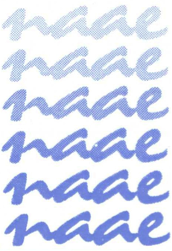An open letter to NAAE from Helen Champion, Arts Curriculum Specialist at ACARA
How are you? I hope that you’re staying safe, creative and connected. In the weeks since I started working from home, I’ve appreciated more than ever that being in contact with friends, colleagues and like-minded people is essential.
Usually I work in ACARA’s Melbourne office where I’m the only learning area specialist, so video conferencing to connect with my colleagues who work in Brisbane, Sydney, Canberra, Adelaide and Perth is ‘business as usual’. These days, the curriculum team is very conscious of our privilege in being able to connect and communicate easily as we continue our planned work.
Current work
With the current need for resources which can be used in digital and blended learning contexts I’m surveying the range of Arts education resources that are available online from Australia’s arts, cultural and scientific organisations. There are lots to choose from and they reveal much about how the curriculum is being interpreted as well as reflecting the key role that partner organisations play in supporting teachers to implement the curriculum. If you’re aware of publicly available resources, let me know the links or other information. Please note that ACARA doesn’t endorse resources published by other organisations.
Work on ACARA’s Curriculum Connection, focusing on Multimedia, is nearing completion. This resource looks at how using multimedia to communicate, connect and create offers opportunities for teachers to develop learning activities across all dimensions of the curriculum. Multimedia (aka digital, interactive or creative digital media) features in curriculum for The Arts, English and Digital Technologies and its use is implied in the curriculum for every learning area, and in relation to each of the general capabilities and the cross-curriculum priorities.
Hearing about what is possible in the time of COVID-19 highlights issues of access and equity. Digital resources are allowing teachers and students to communicate and learn together. However, experience is also demonstrating that access to the digital world isn’t a reality for every home in Australia.
Preparing for the future
Monitoring and evaluation are part of the ACARA curriculum team’s regular work. We seek and collate feedback from state and territory stakeholders, media reports and website analytics. We also conduct and participate in research such as the OECD’s Education 2030 project. Articles from the news media, newsletters, journals, research reports and other publications provide insights into how the curriculum is being implemented and, very importantly, developments in the field. Some of the issues that feature regularly in feedback from stakeholders about Australian Curriculum: The Arts are:
online presentation. Is the current presentation of the curriculum giving teachers straightforward access to the information they need when they’re using the curriculum to plan learning? How straightforward is it to access the information they need? Is there a need for illustrations of practice to illustrate how the curriculum can be used?
learning area standards. These were introduced in 2015. They stand alone without reference to content descriptions. How useful is this for teachers?
connections in multi-disciplinary forms and practices, between Arts subjects, across the three dimensions of the curriculum (particularly with the Aboriginal and Torres Strait Islander histories and cultures Cross-curriculum priority) and with other learning areas (especially for F-6). How can these connections be recognised in the curriculum to enrich learning area and subject authenticity?
There are big conversations are ahead of us! Please stay in touch, and contact me by email.
